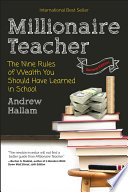

The author emphasizes the importance of investing in low-cost index funds as a primary strategy for building wealth. Index funds are mutual funds that track a specific market index, such as the S&P 500. They offer diversification, lower fees, and have historically outperformed actively managed funds over the long term. The author argues that by investing in index funds, individuals can minimize risk while maximizing potential returns. This approach is particularly beneficial for those who may not have the time or expertise to manage a complex investment portfolio. The simplicity and effectiveness of index funds make them a cornerstone of the author's investment philosophy.
Continue readingThe book underscores the necessity of financial literacy and education. The author believes that understanding basic financial concepts—such as compound interest, asset allocation, and risk management—is crucial for making informed investment decisions. By educating oneself about personal finance and investing, individuals can avoid common pitfalls and make smarter choices that lead to wealth accumulation. The author encourages readers to seek out resources, whether through books, courses, or mentorship, to enhance their financial knowledge and confidence.
Continue readingA key principle in 'Millionaire Teacher' is the importance of frugality and living below one's means. The author advocates for a lifestyle that prioritizes saving and investing over excessive spending. By cutting unnecessary expenses and making conscious financial choices, individuals can allocate more funds towards investments that will grow their wealth over time. The author shares practical tips for budgeting and reducing expenses without sacrificing quality of life, reinforcing the idea that financial discipline is essential for achieving long-term financial goals.
Continue readingThe author stresses the significance of adopting a long-term perspective when it comes to investing. Many investors are tempted to chase short-term gains or react to market fluctuations, which can lead to poor decision-making and losses. Instead, the author encourages a buy-and-hold strategy, where investors focus on the long-term potential of their investments. By remaining patient and avoiding emotional reactions to market volatility, individuals can benefit from the compounding effect of their investments and ultimately achieve greater financial success.
Continue readingIn 'Millionaire Teacher', the author discusses the dangers of debt and poor investment choices. He warns against high-interest debt, such as credit card debt, which can erode wealth over time. Additionally, the author advises readers to be cautious of investment schemes that promise quick returns or appear too good to be true. Instead, individuals should focus on sound investment strategies and avoid speculative ventures that carry high risk. By steering clear of debt and bad investments, readers can protect their financial health and build a solid foundation for wealth accumulation.
Continue readingDiscipline and consistency are recurring themes in the book. The author highlights that successful investing is not about timing the market but rather about consistently contributing to investments over time. Establishing a regular investment routine, such as dollar-cost averaging, can help individuals build wealth gradually and reduce the impact of market volatility. The author encourages readers to develop a disciplined approach to saving and investing, reinforcing the notion that small, consistent contributions can lead to significant financial growth over the long term.
Continue readingFinally, the author emphasizes the importance of giving back to the community and achieving financial independence. He believes that true wealth is not just about accumulating money but also about using it to make a positive impact on others. The author encourages readers to consider philanthropy and community involvement as part of their financial journey. Additionally, achieving financial independence allows individuals the freedom to pursue their passions and live life on their own terms, which is a fundamental goal of the financial strategies outlined in the book.
Continue readingThe reading time for Millionaire Teacher depends on the reader's pace. However, this concise book summary covers the 7 key ideas from Millionaire Teacher, allowing you to quickly understand the main concepts, insights, and practical applications in around 21 min.
Millionaire Teacher is definitely worth reading. The book covers essential topics including Investing in Index Funds, The Power of Financial Education, Living Below Your Means, providing practical insights and actionable advice. Whether you read the full book or our concise summary, Millionaire Teacher delivers valuable knowledge that can help you improve your understanding and apply these concepts in your personal or professional life.
Millionaire Teacher was written by Andrew Hallam.
If you enjoyed Millionaire Teacher by Andrew Hallam and want to explore similar topics or deepen your understanding, we highly recommend these related book summaries:
These books cover related themes, complementary concepts, and will help you build upon the knowledge gained from Millionaire Teacher. Each of these summaries provides concise insights that can further enhance your understanding and practical application of the ideas presented in Millionaire Teacher.